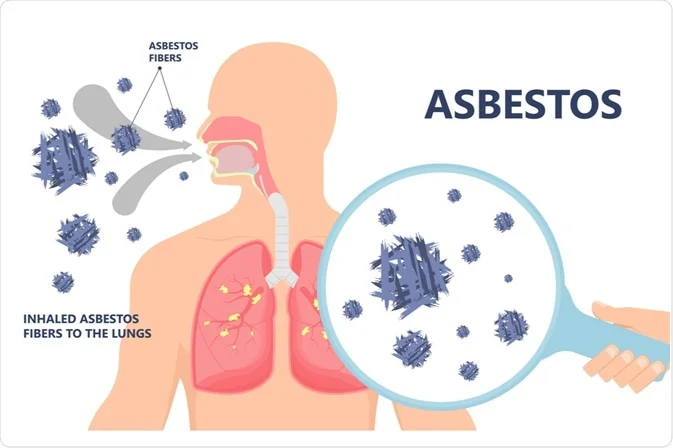Introduction: The Devastating Impact of Mesothelioma on Health
Mesothelioma is a rare, aggressive cancer caused primarily by exposure to asbestos fibers. This disease impacts the mesothelium — a protective lining covering internal organs — most commonly affecting the lungs (pleural mesothelioma) but also the abdomen (peritoneal mesothelioma), heart, and testicles in rare cases. The health effects of mesothelioma are severe, significantly reducing quality of life and life expectancy for affected individuals.
In 2025, with thousands diagnosed annually in the United States alone, understanding the progression, symptoms, and treatment-associated effects of mesothelioma remains crucial for patients, families, and caregivers alike.
The Progression and Symptoms of Mesothelioma
Mesothelioma generally develops 20 to 50 years after asbestos exposure, with symptoms arising subtly and worsening over time. Common initial and progressive symptoms include:
-
Chest Pain and Discomfort: Persistent pain in the chest or lower back is typical, often worsening with breathing or coughing.
-
Shortness of Breath: Fluid buildup around the lungs (pleural effusion) makes breathing difficult.
-
Chronic Cough: Persistent coughing that mimics respiratory infections.
-
Fatigue and Weakness: Cancer-related wasting and anemia lead to profound physical weakness.
-
Weight Loss and Appetite Loss: Many patients suffer from unexplained weight loss and reduced appetite.
-
Abdominal Pain and Swelling: In peritoneal forms, pain, swelling, and bowel changes are common.
-
Respiratory Complications: Advanced cases may cause respiratory failure, pneumonia, or other lung infections.
Impact on Physical Health
The health effects of mesothelioma extend beyond localized symptoms:
-
Impaired Lung Function: Tumor growth and pleural fluid buildup compress lung tissue, resulting in decreased oxygen exchange.
-
Chronic Pain: Tumor invasion into chest muscles and surrounding nerves results in persistent, often severe pain.
-
Metastasis: Mesothelioma can spread to distant organs including the heart, liver, and bones, complicating health further.
-
Immune System Weakening: Both cancer and treatments weaken immune defenses, increasing infection risks.
Psychological and Emotional Effects
Diagnosed individuals frequently face significant emotional and psychological burdens:
-
Anxiety and Depression: Fear of prognosis and treatment side effects often lead to anxiety disorders and depression.
-
Stress on Families: Loved ones carry emotional strain and caregiving burdens.
-
Isolation: Physical limitations and emotional distress can reduce social interactions, leading to loneliness.
Common Treatment Side Effects Affecting Health
Mesothelioma treatments can improve survival and quality of life but frequently cause side effects impacting health:
-
Surgery: Procedures like pleurectomy and extrapleural pneumonectomy may result in pain, reduced lung capacity, and lengthy recoveries.
-
Chemotherapy: Common side effects include nausea, fatigue, hair loss, lowered blood cell counts, and increased vulnerability to infection.
-
Radiation Therapy: May cause site-specific pain, skin irritation, and fatigue.
-
Experimental Treatments: Immunotherapy and targeted therapies pose unknown risks but offer hope for some patients.
Supportive Care and Symptom Management
Due to the aggressive nature of mesothelioma, managing symptoms is essential:
-
Pain Management: Use of opioids, nerve blocks, and alternative therapies to control chronic pain.
-
Respiratory Support: Oxygen therapy and thoracentesis to relieve pleural effusions improve breathing.
-
Nutritional Support: Dieticians assist in maintaining strength through balanced nutrition.
-
Psychological Counseling: Mental health professionals provide coping strategies for patients and families.
Prognosis and Life Expectancy
Mesothelioma prognosis depends on cancer stage, cell type, and patient health. Median survival times remain low, often ranging 12-21 months from diagnosis for pleural mesothelioma, but treatments and early diagnosis may extend life.
Featured Resource for Patients and Families
The Mesothelioma Center provides trusted information, treatment resources, and support networks tailored to mesothelioma patients.
-
Website: Mesothelioma.com
-
Services: Comprehensive guides on diagnosis, treatment options, clinical trials, and legal resources.
Read More: Top 10 Mesothelioma Law Firms in the USA | 2025 Leading Legal Resource
Conclusion: Navigating the Health Challenges of Mesothelioma
Mesothelioma profoundly affects physical, emotional, and social health. Awareness of symptoms, treatment impacts, and supportive care options is fundamental for patients and caregivers managing this disease in 2025.
For reliable treatment guidance and support, patients should consult specialized medical centers such as The Mesothelioma Center and adopt a multi-disciplinary care approach to mitigate health effects and enhance quality of life.









